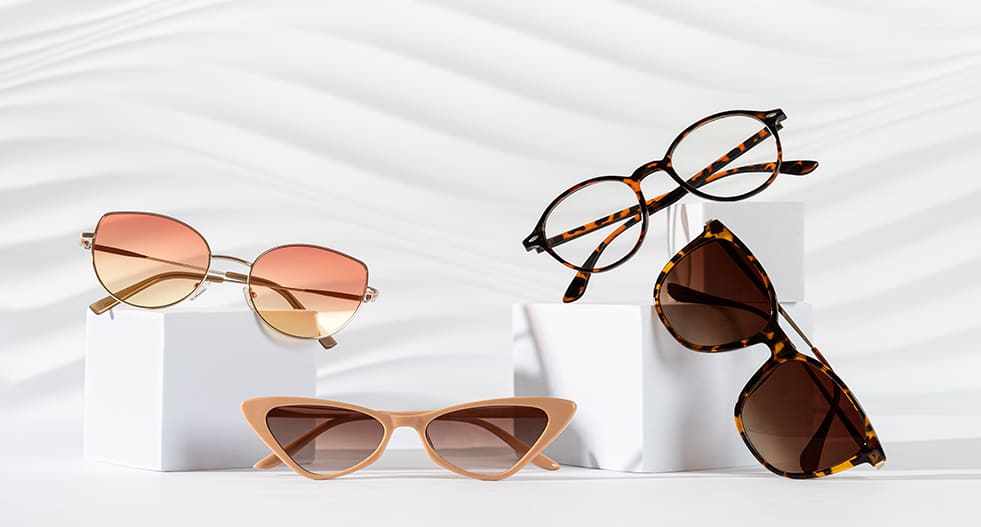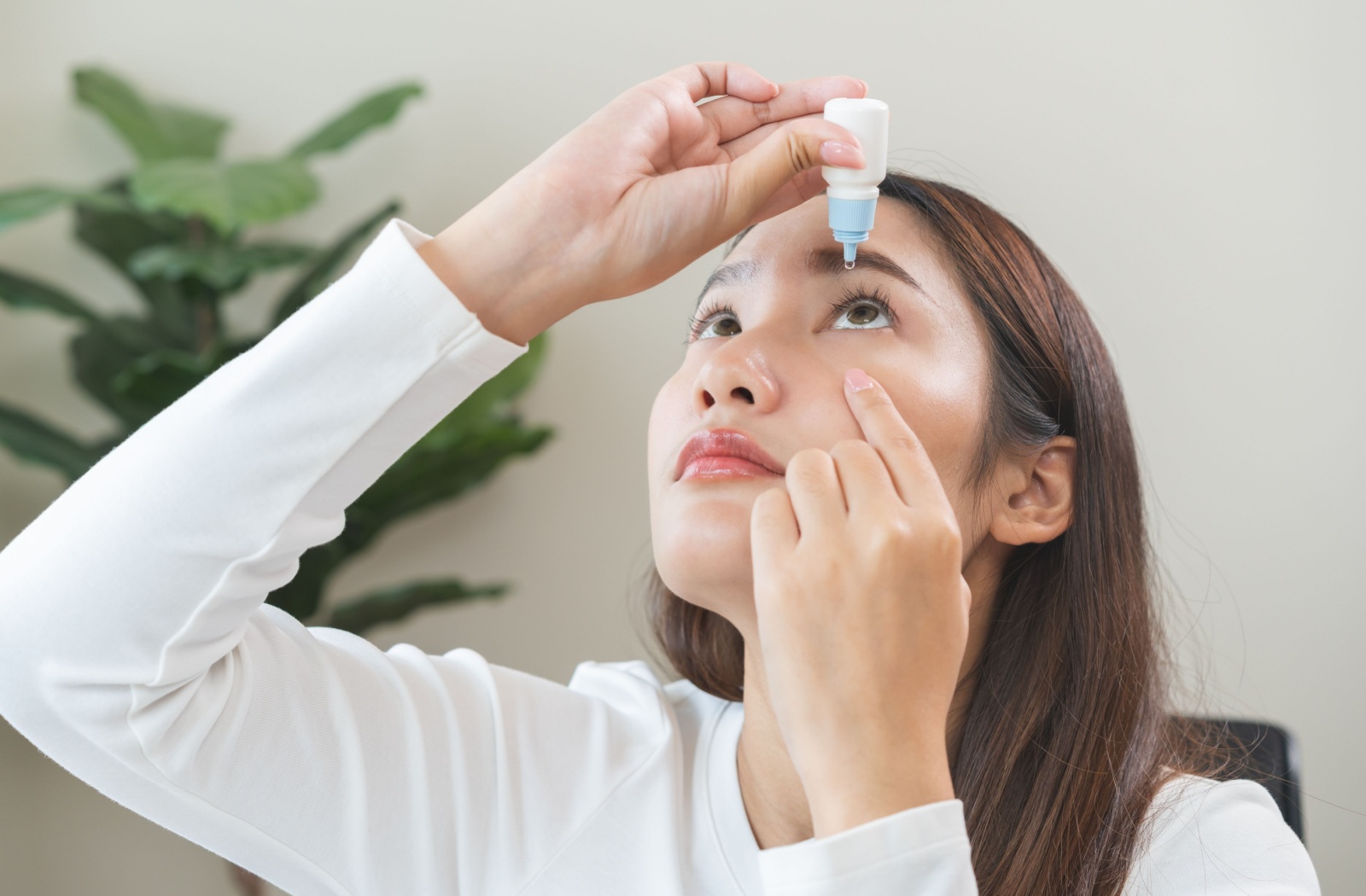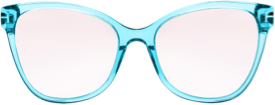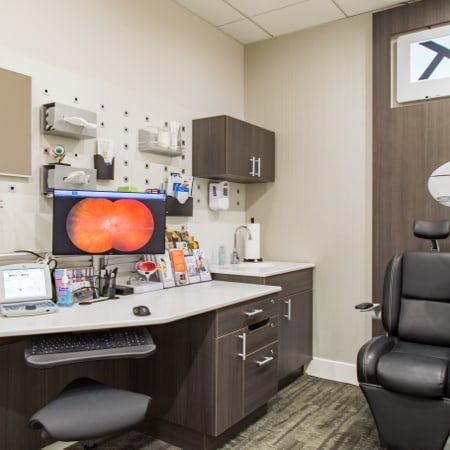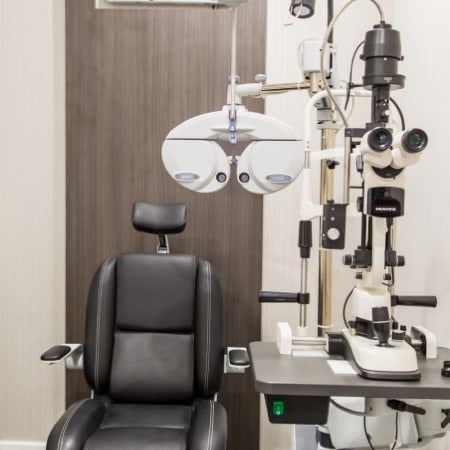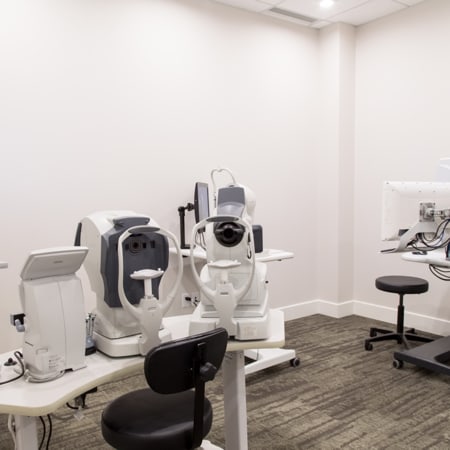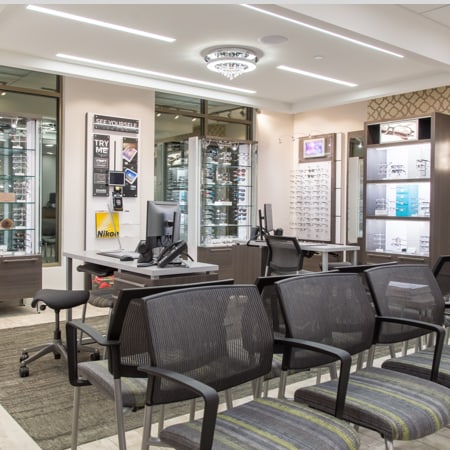Whether you’re treating dry eyes, managing allergies, or recovering from surgery, eye drops are a vital part of many people’s eye care routines. But as time passes, it’s easy to forget when you opened that little bottle in your medicine cabinet—or whether it’s still safe to use. At Bluewater Optometry, we often get asked: Can you use expired eye drops?
No, you shouldn’t use expired eye drops. Expired eye drops can lose their effectiveness, become contaminated, and may lead to eye infections, irritation, or other adverse reactions.
That’s why we always recommend following the expiration date and proper storage practices. If you’re unsure about your eye drop usage or are experiencing persistent symptoms, book an eye exam with our team in Sarnia or learn more about our dry eye treatments and get the care that your eyes deserve.
Why Expiry Dates Matter
Just like medication, eye drops come with a shelf life. This expiration date isn’t just a guideline—it’s the date after which the manufacturer can no longer guarantee the safety, sterility, or effectiveness of the solution.
Eye drops expire for a number of reasons:
- Degraded ingredients: Over time, the active components in the drops may break down, making the formula less effective or potentially unstable.
- Reduced sterility: Preservatives in eye drops are designed to prevent bacterial or fungal growth—but these preservatives degrade over time. Without them, the solution may become a breeding ground for harmful microbes.
- Irritation or allergic reactions: As ingredients deteriorate, they can change chemically. Even if you’ve used the product before, it might now cause redness, stinging, or swelling.
If expired drops are used for a condition like an infection or post-surgical healing, their lack of effectiveness could prolong recovery—or worse, allow symptoms to worsen.

How Eye Drops Can Become Contaminated
Even before they expire, eye drops are vulnerable to contamination, especially if not handled correctly. This risk increases significantly once they’ve passed their expiration date. Here are a few common ways contamination can occur:
- Touching the nozzle: If the tip of the dropper touches your eye, skin, fingers, or lashes, bacteria or fungi can be transferred into the bottle.
- Repeated exposure to air: Every time you open the bottle, it’s exposed to the environment—allowing microscopic contaminants to enter.
- Breakdown of preservatives: In multi-use bottles, preservatives are essential for preventing microbial growth. Once they weaken, harmful pathogens can begin to grow.
Using contaminated drops may lead to symptoms like itching, redness, discharge, blurry vision, or more serious infections like conjunctivitis or keratitis.
Signs Your Eye Drops Are No Longer Safe to Use
Even if you’re not sure of the expiry date, your eye drops may offer a few warning signs:
- Cloudy or discoloured solution
- Unusual or foul smell
- Crust or residue on the bottle cap or dropper tip
- Change in consistency (e.g., thick, sticky, or separated)
If you notice any of these changes, don’t use the drops. Dispose of the bottle safely and consult your optometrist for a replacement or alternative.
Special Caution for Preservative-Free Eye Drops
Preservative-free eye drops are commonly recommended for people with dry eyes or sensitivities. However, they often come in single-use vials or multi-dose bottles with a shorter lifespan once opened.
- Always read the label for instructions on use and disposal.
- Single-use vials should be discarded immediately after opening.
- Multi-dose preservative-free bottles may need to be thrown out 30 days after opening—even if the expiry date hasn’t passed.
This type of product is especially vulnerable to contamination, so make sure to use them correctly and avoid saving opened containers.
Safe Storage Practices for Eye Drops
Proper storage helps preserve the safety and effectiveness of your eye drops—and can even extend their usable life (within the expiry window). To prevent premature degradation:
- Store in a cool, dry place, away from direct sunlight and humidity.
- Keep the cap tightly closed after each use.
- Avoid storing in extreme temperatures, like in your car or near a heater.
- Follow the “discard after opening” label, if applicable (often 30–60 days for many products).
If you travel frequently, be mindful of how changes in temperature or pressure (like on a plane) might impact your drops.
What to Do with Expired Eye Drops
When you discover an expired bottle of eye drops, resist the urge to squeeze out one last use. It’s best to dispose of them safely.
- Don’t pour expired drops down the drain or flush them.
- Check with your local pharmacy for medication disposal programs.
- If no disposal program is available, you can place the bottle in a sealed bag and throw it in the trash (but remove or scratch out any personal prescription information first).
When to See an Optometrist
While over-the-counter eye drops are handy for occasional discomfort, persistent symptoms may indicate a more serious issue. Visit your optometrist if:
- Your symptoms last more than a few days or worsen.
- You experience eye pain, swelling, or discharge.
- You notice sudden changes in your vision.
- You’re unsure about which type of eye drops are safe or effective for your needs.
The team at Bluewater Optometry offers comprehensive eye care for all ages, whether you need help managing chronic dry eye, treating allergies, or adjusting your prescription.
Protect Your Vision by Staying Informed
Your eyes are sensitive, and what you put in them matters. Using expired eye drops can lead to discomfort, ineffective treatment, or even infection. Play it safe by checking expiry dates, storing your products correctly, and consulting your optometrist when in doubt.
At Bluewater Optometry in Sarnia, we’re here to help you maintain clear, healthy vision with trusted guidance and tailored treatments. Book an appointment today and let our experienced team provide the eye care you deserve.
